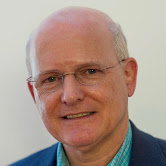IEEE Computer Society and GBC/ACM
7:00 PM, Thursday, 17 October 2019
MIT Room 32-G449 (Kiva)
This talk will be webcast on the MIT CSAIL Youtube channel https://www.youtube.com/channel/UCYs2iUgksAhgoidZwEAimmg/live beginning at 7pm.The Resurgence of Software Performance Engineering
Charles E. Leiserson, MIT CSAIL

Today, most application developers write code without much regard for how quickly it will run. Moreover, once the code is written, it is rare for it to be reengineered to run faster. But two technology trends of historic proportions are instigating a resurgence in software performance engineering, the art of making code run fast. The first is the emergence of cloud computing, where the economics of renting computation, as opposed to buying it, heightens the utility of application speed. The second is the end of Moore's Law, the 50-year technology trend which has, until recently, relentlessly doubled the number of transistors on a semiconductor chip every two years. With the attenuation of this major source of computing performance, application programmers will increasingly find themselves turning to software performance engineering in order to develop innovative products and applications.
Charles E. Leiserson received his B.S. from Yale University in 1975 and his Ph.D. from Carnegie Mellon University in 1981. He joined the faculty of the Massachusetts Institute of Technology in 1981, where he is now the Edwin Sibley Webster Professor in MIT's Electrical Engineering and Computer Science (EECS) Department. He is Associate Director and Chief Operating Officer of the MIT Computer Science and Artificial Intelligence Laboratory (CSAIL), the largest on-campus laboratory at MIT, where he also leads the Supertech research group. He is a Margaret MacVicar Faculty Fellow, the highest recognition at MIT for undergraduate teaching. He is a Fellow of four professional societies - AAAS, ACM, IEEE, and SIAM - and he is a member of the National Academy of Engineering. He has received many Best Paper awards at prestigious conferences, as well as major awards, including the ACM-IEEE Computer Society Ken Kennedy Award, the IEEE Computer Society Taylor L. Booth Education Award, ACM Paris Kanellakis Theory and Practice Award, and the ACM and Hertz Foundation Doctoral Dissertation Awards.
Professor Leiserson's current research centers on software performance engineering - making computer programs run fast by whatever means: algorithms, parallel computing, caching, compilation, processor pipelining, bit tricks, vectorization, etc. His contributions include the Cilk multithreaded programming language and runtime system, which is available today in many open-source and commercial compilers. He founded Cilk Arts, Inc., an MIT spinoff eventually acquired by Intel Corporation. On leave from MIT as Director of System Architecture at Akamai Technologies, he led the engineering team that developed Akamai’s worldwide content-distribution network comprising tens of thousands of servers. He led the development of several Cilk-based parallel chess-playing programs, including *Socrates and Cilkchess, winning numerous prizes in international competition. He designed and led the implementation of the network architecture for Thinking Machines Corporation's Connection Machine Model CM-5, the world's most powerful supercomputer in the early 1990s, which incorporated the "universal" fat-tree interconnection network he conceived at MIT. Fat-trees are now the preferred interconnect strategy for Infiniband technology. He coauthored the first paper on systolic architectures, invented the retiming method of digital-circuit optimization, and introduced the notion of cache-oblivious algorithms.
An engaging educator, Professor Leiserson developed the MIT undergraduate courses on algorithms, discrete mathematics for computer science, and software performance engineering. He is well known as a coauthor of Introduction to Algorithms (MIT Press), the leading textbook on computer algorithms, now in its third edition, which has sold over 800,000 copies and is one of the most cited publications in all of computer science. His annual workshop on Leadership Skills for Engineering and Science Faculty has educated hundreds of faculty at MIT and around the world in the human issues involved in leading technical teams in academia. He was the founding Workshop Chair for the MIT Undergraduate Practice Opportunities Program (UPOP), which teaches MIT Engineering sophomores how leadership skills can leverage their technical skills in professional environments. He was for many years the head of the computer-science program for the Singapore-MIT Alliance, one of the first distance-education collaborations. Professor Leiserson has graduated over two dozen Ph.D. students and supervised more than 60 Masters and Bachelors students.
This joint meeting of the Boston Chapter of the IEEE Computer Society and GBC/ACM will be held in MIT Room 32-G449 (the Kiva conference room on the 4th floor of the Stata Center, building 32 on MIT maps) . You can see it on this map of the MIT campus.
Up-to-date information about this and other talks is available online at https://ewh.ieee.org/r1/boston/computer/. You can sign up to receive updated status information about this talk and informational emails about future talks at https://mailman.mit.edu/mailman/listinfo/ieee-cs, our self-administered mailing list.
Updated: Oct 11, 2019.